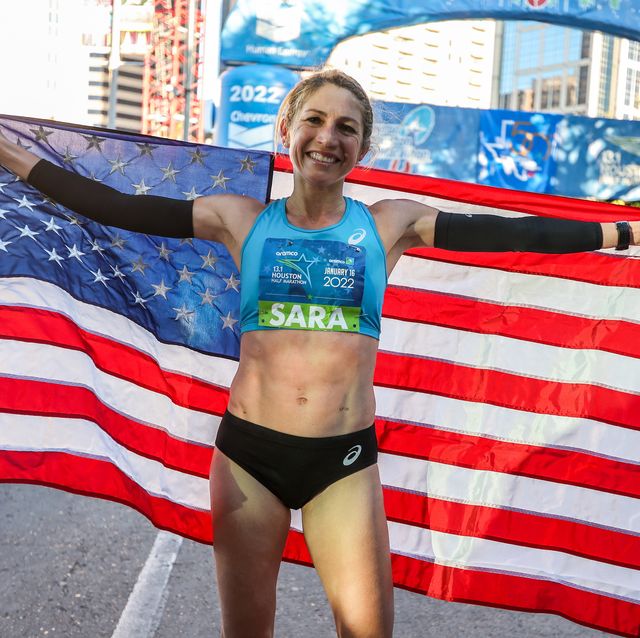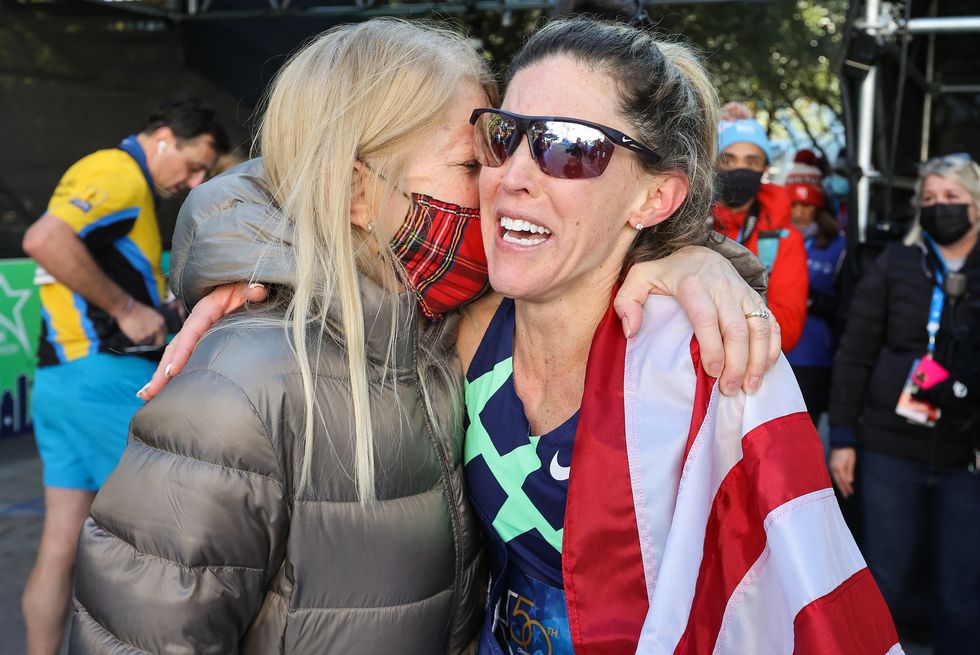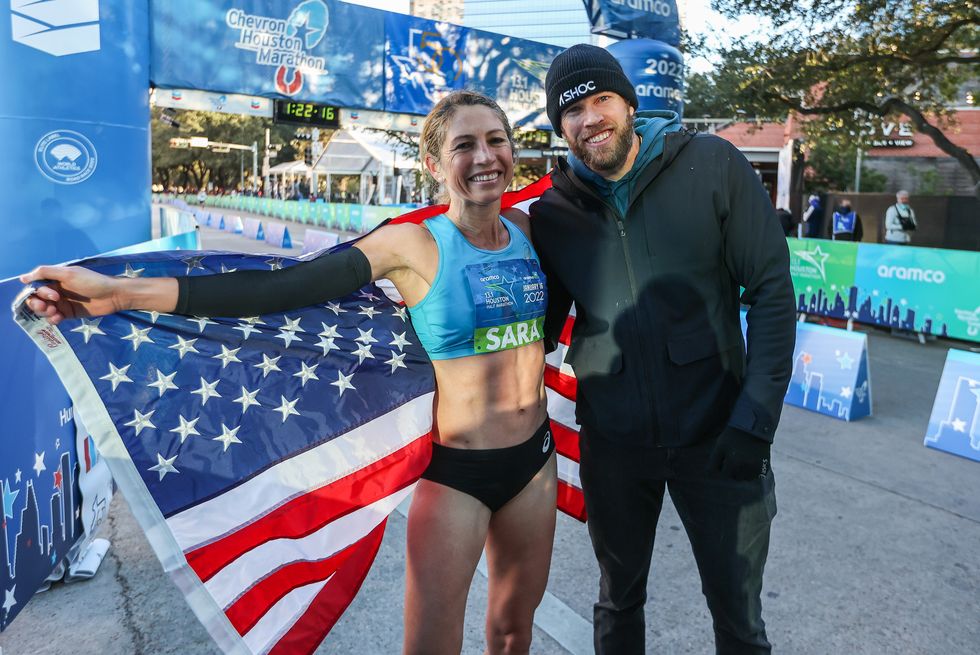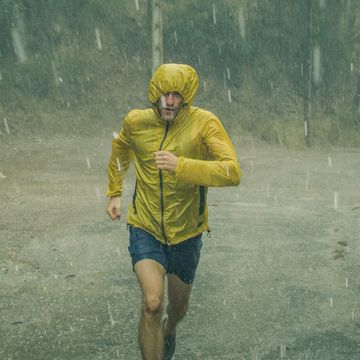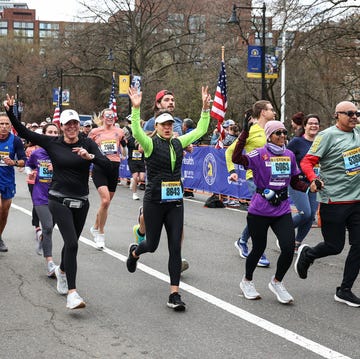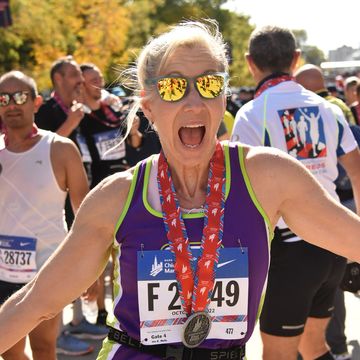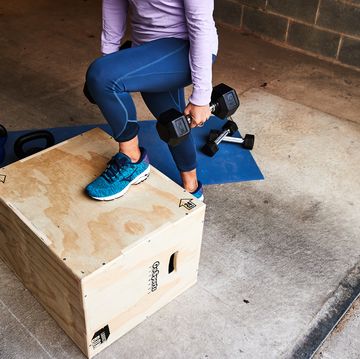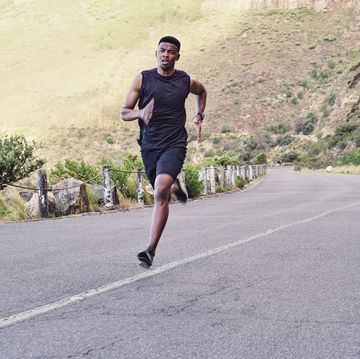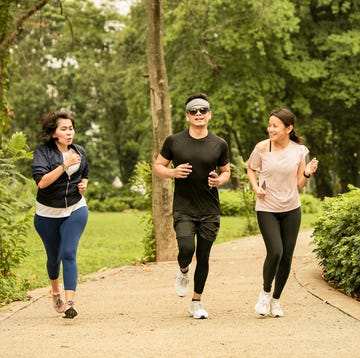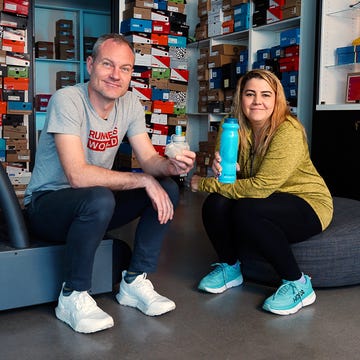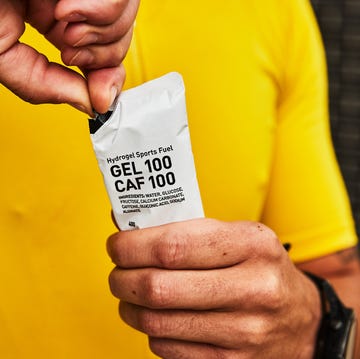On the morning of January 16, 2022, Keira D’Amato and Sara Hall started the Houston Marathon and Half Marathon together and made women’s running history.
Hall, 38, set the American women’s half marathon record when she finished the race second in 1:07:15, improving on the previous mark by 10 seconds. A little more than an hour later, D’Amato, 37, set the American women’s marathon record when she won in 2:19:12. She broke the long-standing previous record of 2:19:36 set by Deena Kastor in 2006.
That day was a major celebration for both runners, and it also marked a decades-long culmination of lessons learned from navigating failure and success, while building resiliency along the way.
While many of her peers hung up their running shoes years ago, Hall’s resilience has been paramount in helping her handle setbacks at the highest level of the sport and ultimately help her reach her goals. After an injury-plagued post-collegiate experience, D’Amato was forced to walk away from running in 2009, but honing resiliency helped her make one of the most impressive comebacks ever seen among the elite ranks.
In interviews with Runner’s World, D’Amato and Hall shared how their running journeys are rooted in resilience, a skill that’s taken them to new heights in and outside of the sport. Here are five tips from the record-holders on ways to build resilience that you can apply to your running journey, as well.
Set New Goals That Excite You
D’Amato earned All-American honors while competing for American University in Washington, D.C., and she raced as an elite post-college, but the first chapter of D’Amato’s running career ended in heartbreak when she had ankle surgery in 2009.
It was a difficult transition, because she placed a lot of her identity in the sport, but D’Amato coped with the disappointment by setting new goals to strive for, and focused on the opportunities that were available to her outside of running. Without high-level training on her schedule, D’Amato had more time to develop a career in real estate and establish more financial stability, for example.
“I just tried to focus on all the positive changes and not dwell on the negative because there was nothing I could do about it,” she says.
For D’Amato, forgiveness was another key element in her transition away from running. Walking away from the sport in 2009 meant that she was walking away from long-term goals. For years, D’Amato believed wholeheartedly that if she worked hard enough, she’d achieve those milestones. But it wasn’t meant to be at the time, so she chose to move forward by filling the fitness void with spin classes and CrossFit, and by being kind to herself.
“I felt like I was quitting, and I’m not a quitter,” she says. “I had to forgive myself for not hitting those goals.”
Survive and Grow From Failure
Hall’s running accomplishments early in her career—winning Foot Locker and California state titles while competing for Montgomery High School in Santa Rosa, California—led to an athletic scholarship at Stanford University. But after spending years at the top of the high school ranks, Hall had a difficult time when she started to lose races with tougher competition.
“I hadn’t really had to deal with a lot of failure [as a young runner], but when I started to struggle in college and as a pro, I realized how much of my self worth was tied to being successful,” she says.
To move through failure, Hall learned to set boundaries with processing each result, giving herself a 24-hour limit to be upset about a lackluster performance before picking herself back up.
“I developed racing amnesia, where I could quickly forget about bad races and focus ahead on the next race I was excited about,” she says. “That process really was just from lots of repetition—failing a lot, and then realizing it’s not the end of the world.”
Like Hall, D’Amato usually gives herself 24 hours to be upset about a setback. But last summer, she needed 72 hours to process the pain of withdrawing from the 2021 U.S. Olympic Track and Field Trials, where she was planning to race the 10,000 meters, due to a hamstring injury. After grieving the disappointment, D’Amato shifted her focus from sadness to optimism by determining the lessons she could gain from the experience.
“I learned that there was a big strength imbalance. It took an injury for me to find that. It’s unfortunate that I had to learn the lesson that way, but since then I've been working really hard at that imbalance,” D’Amato says.
D’Amato explained the importance of establishing a strength regimen and prehab exercises, which provided “a lot of really important lessons that I think are going to make me a stronger runner moving forward.” Last fall, D’Amato started to notice improvements in her form, especially towards the end of races; previously, her form used to waver from fatigue.
“You learn more when you fail than when you succeed,” she says. “I was able to take all of those lessons and apply them. I feel like I was rewarded for it.”
By the time D’Amato arrived at the Houston Marathon, she was able to use all of those lessons from failure to achieve her goal of breaking the American record. “I figured out every way to lose and from that, it taught me how to win,” she says.
Know Your Self-Worth Goes Far Beyond Performance
In January 2007, Hall cheered as her husband, Ryan, smashed the American record at the Houston Half Marathon. The then 24-year-old crossed the finish line in 59:43, making history as the first American runner to break the 60-minute barrier. The record is one of many accomplishments Ryan earned early on in his career, highlighted by two Olympic teams (2008 and 2012) and the fastest marathon ever run by an American.
Sara was also running professionally at the time, but not seeing the same otherworldly levels of success her husband was experiencing right out of college. Sara says she considers her and Ryan to be a supportive team, but she couldn’t help but fall into the comparison trap at times.
“I was working just as hard, if not harder, but for various reasons was really struggling,” Sara says. “It really started to affect my mental health and self-worth. I was not enjoying competing as much. I was more afraid to fail than excited for the opportunity.”
To move through the feelings of fear and comparison, Sara says she leaned into her faith in God to realize her self worth isn’t tied to performance. From that point on, Hall started racing more fearlessly with a sense of acceptance knowing she’d be supported no matter the result.
“I was worthy of love and belonging no matter if I placed last in every single race I ever ran,” she says. “That changed everything for me….I started feeling more free to take risks and enjoy competing more, and my races started going a lot better, and it's been snowballing forward ever since.”
Fifteen years later, Sara enjoyed her own record-breaking moment on the same course where Ryan set the men’s record.
Stick to What Motivates You
For the seven years when D’Amato wasn’t running at an elite level, she established new motivations for remaining connected to the sport. She honed in on her love for the running community by spectating races and joining group runs once her ankle healed. And she kept running casually for the mental and physical health benefits.
When she returned to racing in 2016, D’Amato’s “why” became her love for the process of self-improvement. She focused on keeping the sport fun while being competitive with herself in a way that encouraged growth. “I feel like I've been able to be resilient because I just believe I haven't found my limits, and that's so exciting to me to be able to get up and work every day to see what else I can do,” D’Amato says.
With this motivation, D’Amato approaches each success or failure as a stepping stone in a journey of self discovery. With her long-term goals in mind, she aims to be patient with herself, learning from the failures and celebrating the victories along the way that build to breakthroughs.
“Looking forward is just a really important part and not putting too much weight on any single run, workout, race,” she says. “In running, it’s the accumulation and the consistency that really matters. It’s not one day.”
Hall also leans on her passion for the process, which became even more important when she faced what she considers to be the biggest disappointment of her running career. Heading into the 2020 U.S. Olympic Marathon Trials, Hall was in top shape after setting the second-fastest women’s qualifying time in the field, running a 2:22:19 in the 2019 Berlin Marathon. On February 29, 2020 in Atlanta, Georgia, Hall was racing with the lead women’s pack through 19 miles when she fell off pace before dropping out.
“I was calm, confident, healthy and excited, but I felt like there were a lot of external things that affected that race—the extreme course and uneven playing field of shoes, and how those things compounded the situation,” she says. “That’s what made it really hard to move past. It felt very unjust that we were choosing our team in a scenario like this in a way that literally no other country would ever do.”
Just a few weeks later, the disappointment was made especially difficult when the global pandemic forced widespread lockdowns and event cancellations. Hall’s usual coping skills of focusing on the next race and “getting back on the horse” were no longer possible. She had to pivot.
“Mentally, it was a difficult time, but I threw myself into the grind and just focused on enjoying the process,” she says. “I chose to believe that there would be opportunities, and when they came, I’d be ready.”
In August 2020, Hall’s patience paid off when she ran a then-personal best of 1:08:18 in a solo half marathon in Oregon, and she followed that up in October 2020, when she ran a personal best of 2:22:01 to finish second at the 2020 London Marathon.
Remember this sport is a gift that should be shared
When asked what advice she’d share with the younger version of herself from 15 years ago, Hall said she’d emphasize the fact that she’s “loved fully, no matter how her races are going, and that she doesn't have to perform to be loved and accepted.”
“This sport was never meant to be a burden, it’s actually the greatest gift,” Hall continues. “She’ll hardly remember the bad races she’s having right now 15 years from now and they'll hardly matter in comparison to the great moments ahead. The relationships she makes along the way will be the best part of the sport.”
Now in this next chapter of her running career, D’Amato has a support system that includes her husband, Anthony; their kids, Tommy, 7, and Quin, 5; and her coach, Scott Raczko, among others in her corner. They have also become an integral part of building her resilience.
“It’s easier to be resilient when you’re being true to yourself,” D’Amato says. “I lean on my family that supports me, loves me, and I’ve shared my goals with them. They hold me accountable and keep me on that path.”
Looking back, D’Amato would advise her younger self to “trust her instincts.” In 2009, she felt forced out of the sport, but she wasn’t ready to come back right after recovering from surgery. Instead, she waited for a time that felt right to her and the decision paid off.
“I would tell that Keira to go your own way, you can do it your own way,” she says. “Trust in yourself and keep it fun.”
Taylor Dutch is a writer and editor living in Austin, Texas, and a former NCAA track athlete who specializes in fitness, wellness, and endurance sports coverage. Her work has appeared in Runner’s World, SELF, Bicycling, Outside, and Podium Runner.
